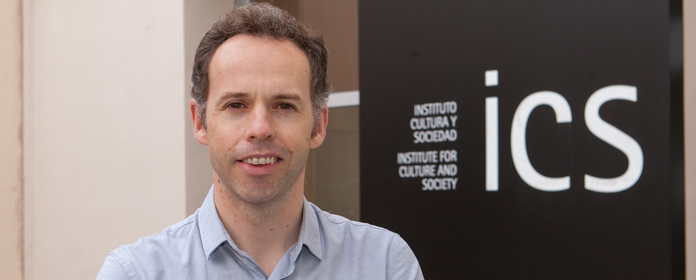The habit of physical exercise modifies brain activity and decision making on effort, according to a University study.
Javier Bernácer, from ICS, has led the work, in which sedentary volunteers have collaborated before and after a 3-month exercise program.

PHOTO: Manuel Castells
 Interview with Javier Bernácer (mp3)
Interview with Javier Bernácer (mp3)
Acquiring the habit of doing physical exercise changes the way in which decisions related to effort are made and modifies brain activity. This is the main conclusion of a research led by Javier Bernácer, of the Institute for Culture and Society (ICS) of the University of Navarra, and published in Neuroimage, the most important scientific journal in the world in its field and the fourth best in cognitive neuroscience.
In the study, a behavioral test and a brain scanner were performed on group of sedentary university students before and after a three-month physical exercise program. The volunteers had to choose between two options to earn €30 in exchange for a certain physical effort. For example, they could choose between running 10 minutes on a treadmill, with a 30% chance of getting the money; or 30 minutes with a 70% chance.
The researcher team found that before the exercise program, most of the subjects tended to choose the options that entailed the least effort and, after three months, they opted for the option with the highest probability. Thus, once the exercise habit has been acquired, "when making a decision, the value we place on physical effort is lower," explains Bernácer.
research interdisciplinary at Philosophy and NeuroscienceRegarding the effect of the habit on the brain, Javier Bernácer points out that when it is acquired "a greater connectivity has been detected between two areas: the amygdala and the anterior cingulate". In fact, article has been a pioneer in confirming how these signals can change longitudinally by analyzing the before and after.
Thus, it was found that these brain regions have been strengthened with the habit and, in addition, emit a signal that correlates with the cost of the effort. "They have a more coordinated activity when the cost is lower," he explains. In addition, the expert mentions that, once the habit is acquired, the brain signal associated with the cost of the effort decreases because running no longer involves so much work.
Ultimately written request, the research tries to approach in a holistic and interdisciplinary way the concept of habit from Philosophy and Neuroscience. "We must continue to study this topic to find out if this connectivity is specific to physical exercise or can be generalized to habits of perseverance and constancy," concludes Bernácer.
The article is signed by specialists of the group 'Mind-Brain' of the ICS, the research center Applied Medicine (CIMA) and the School of Education and Psychology of the University of Navarra.
